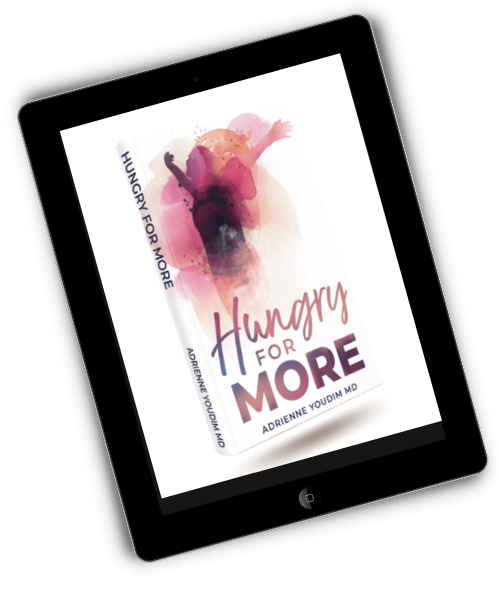Women around their 40s typically start to experience symptoms brought along by the perimenopausal and menopausal stages of their life.
From weight gain, mood swings, and experiencing a decline in cognitive aspects – there’s really nothing so easy with the things women go through at this point of time.
Do you want to be able to celebrate your womanhood in the healthiest manner, taking into consideration all aspects of your wellbeing?
Do you want to be able to go through menopause without actually risking your health and your chances of actually having a longer life to live?
Menopause naturally happens; we cannot really stop it. But here’s a secret: there are actually LOTS of ways on how we can prevent its symptoms from taking away the healthy life we all deserve to live!
As we celebrate International Women’s Day last week, Health Bite is here to help you deal with your concerns around menopause. Sit back and relax as we share with you today’s tips!
Dr. Adrienne Youdim is a board-certified Internist and is the host of the podcast Health Bite. She specializes in medical weight loss and nutrition, and she is aiming to transform the weight loss narrative into one that is both empowering and compassionate – inspiring people to live more physically and emotionally fulfilling lives through evidence-based strategies that actually show results.
Through her podcast, Dr. Adrienne debunks all myths in the current weight loss culture and supports people in living the life they deserve as they work on becoming the best version of themselves.
In this episode, Dr. Adrienne discusses what menopause and perimenopause are as she shares tips on how women can keep themselves alive and kicking in the healthiest manner while dealing with the symptoms of menopause.
What you will learn from this episode:
- Learn what menopause and perimenopause are, and know when these two take place in a woman’s life;
- Understand what happens in a woman’s body during menopause and discover ways on how to effectively deal with these changes; and
- Find out lifestyle practices you should try in order for you to be able to take good care of yourself during one of the most crucial years a woman goes through in her life.
“Take some time for yourself. Explore these various practices and see what resonates, what serves you, and then make time for it. Be non-negotiable about creating that time and space for yourself.”
– Dr. Adrienne Youdim
Valuable Free Resource:
How to Deal with the Physiologic Changes during Menopause and Perimenopause
- Start moving your body. Preferably, start doing it even before symptoms of menopause appear. Also, cross train. Do all sorts of physical activity possible. Exercise.
- Get adequate protein. Take at least 20 grams of protein per meal. If you can’t get it through food, get it through high quality supplements. But make sure that you know your source. Be wary of food disguised as a healthy intake.
How to Deal with the Emotional and Mental Effects of Menopause and Perimenopause
- Take time for yourself, for self-care. Move around. Meditate. You can also try other introspective activities like journaling, coloring, reading, and spending time outdoors.
Lifestyle Practices to Prevent Heart Disease
- Diet. Try the Mediterranean style of diet. It’s good, in a lot of ways, for heart health.
- Manage your salt/sodium intake. Limit your addition of sodium when you cook, limit canned and processed foods, limit your food at restaurants, and of course, order in.
- Exercise. Move your body. Try to start with routine exercises.
- Practice meditation. It helps lower your CRP in the blood.
- If you have cholesterol, speak with your cardiologist and ask them how you can manage that. Consider taking statins as well, with a doctor’s recommendation, of course.
How to Preserve Your Bone Density and Prevent Bone Loss at the Same Time
- Consume an adequate amount of calcium and vitamin D.
- For the nth time, exercise. Not only is it important in preventing bone less; it also helps in preventing fractures. Calf raises are highly recommended.
How to Take Good Care of Your Brain
- Use it. Engaging in activities such as reading, solving puzzles, and such is a preventive strategy for Alzheimer’s disease.
- Again, exercise. Also take note that the Mediterranean diet is also good for brain health.
- Avoid alcohol. Routine consumption of alcohol shrinks the brain.
- Sleep. Routine sleep deprivation is associated with cognitive decline. Have at least seven to eight hours of sleep per night. Also, limit your screen time and your consumption of caffeine and alcohol especially at night. Lastly, engage in a routine of soothing practices, such as reading, journaling, and taking a warm shower before going to bed to sleep.
Topics Covered:
01:20 – Celebrating women’s lives: Defining what menopause and perimenopause are
04:25 – What is happening: Why women gain weight during perimenopause and menopause
08:35 – How to deal with the physiological changes: #1. Exercise
10:40 – How to deal with the physiological changes: #2. Get adequate protein
14:39 – Other things that happen during a woman’s menopausal phase: Changes in relationship with others and with oneself
17:27 – How to deal with the emotional and mental effects of menopause and perimenopause
19:49 – Heart health and other risk factors: A huge concern during a woman’s menopausal phase
23:48 – Dr. Adrienne’s tips: Lifestyle practices to prevent heart disease
30:21 – How to preserve your bone density and prevent bone loss at the same time
33:45 – Use it or lose it: How to take good care of your brain
Key Takeaways:
“Muscle, as you know, burns more calories than fat. It is more metabolically active than fat is. And so, if we start to experience this change in body composition, in which there’s a relative increase in the amount of fat, then our metabolic rate, or the amount of calories that we burn just by living, starts to drop. As that body composition changes, as that metabolic rate drops, then the same activity and diet is not going to maintain our weight, but will result in weight gain. And so, something needs to change.” – Dr. Adrienne Youdim
“Start moving your body, and preferably, start this way before perimenopause or menopause even takes hold. The more varied your exercise, the more you’re keeping your body on its toes, essentially. You prevent the body from getting too comfortable, too accustomed to any particular exercise, which means that the calorie and fat burning effect of the exercise remains high, where you want it to be.” – Dr. Adrienne Youdim
“Note that protein requirements actually go up as we get older. Increase your protein. And if you can’t get it through food, get it through high quality supplements. A word of caution, though. Please, know your source. Know where you’re getting your protein. Certain protein powders over the counter can be or have been adulterated.” – Dr. Adrienne Youdim
“It takes time to care for ourselves and reacquaint with ourselves.” – Dr. Adrienne Youdim
“When it comes to brain health, the idiom of ‘use it or lose it’ really matters.” – Dr. Adrienne Youdim
Ways to Connect with Dr. Adrienne Youdim:
- Instagram: https://www.instagram.com/dradrienneyoudim/
- Website: https://www.dradrienneyoudim.com/


